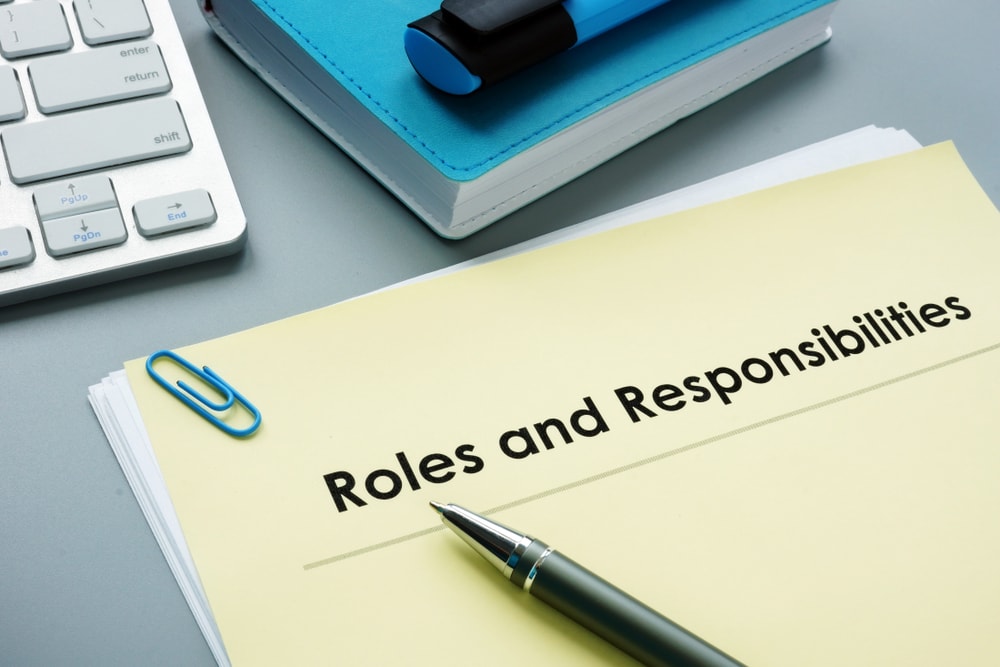Conclusion: The New PR: Securing Trust at Scale
(Following is the conclusion and last of 18 excerpts republished here fromTrust Signals: Brand...

Note: At the outset of his new book, Beyond Expertise: How Trust, Vision and Delivery Will Redefine Your Relationships with Customers and Colleagues, author and entrepreneur Alan Berrey of ExpertDig explains why he studies and writes about the role of subject-matter experts (SMEs) in business: "I believe SMEs are the most valuable members of any organization—period." In Beyond Expertise, Berrey discusses the key role that SMEs play in helping brands build trusting relationships with their customers. Following is an excerpt.
Many years ago, I attended a high-level executive briefing at Ford Motor Company headquarters in Dearborn, Michigan. Ford had a strategic project underway to move all supplier-facing communications from fax, paper, and phone to the web. The initiative would impact the entire supply chain of more than 100,000 companies. As you can imagine, Ford’s corporate leadership was extremely interested in the project.
Since I was intimately involved, the division director, Teri Takai (who would later become the chief information officer for the US Department of Defense), asked me to attend. Teri was allocated five minutes on the crowded agenda, and she asked me to present our progress and attempt to answer any questions. “But be prepared to be cut short,” she warned, “or be skipped altogether if the meeting takes an unexpected turn.”
Despite my junior status, I felt prepared. I knew the teams, the technologies, the schedules, the budgets, and the risks. I knew dozens of financial justifications for the massive investment the company was making. I was confident I could answer any question.
Initially, the executives were patient with me. However, they quickly realized that my focus was too narrow for their needs and they started firing questions at me. Questions I could not answer.
“How long will it take to replicate the technology and processes in Japan?” they asked.
“Which key suppliers will be resistant?” they added.
“We are facing a patent battle in Germany. How will this project complicate that case?”
And on and on.
The five-minute presentation stretched past thirty minutes. Fortunately, Teri rescued me multiple times. She helped answer many of the questions, calm executive concerns, and gracefully deflect irrelevant issues. She focused the executives on the most urgent matters and created a feeling of excitement and optimism.
When the meeting ended, it was clear to all in attendance that Teri was the expert, not me. I was blindsided and flustered. I wanted to know: What was I missing? How had I failed?
After that experience I began studying subject matter experts (SMEs) and taking notes. What do great experts do? How do some SMEs quickly establish trusting relationships? Why do people heed some experts but ignore others? What should I emulate and what should I ignore?
I believe SMEs are the most valuable members of any organization—period. They create vision, forge paths, create products, solve problems, sell customers, create policies, and cure ailments. Companies cannot prosper without them, and unlike non-experts, they provide the scaffolding upon which all other functions of the organization depend.

SMEs often hold top positions in their organizations. The chief executive officer of a start-up company is a subject matter expert. The chief technology officer of a multinational corporation is a subject matter expert. The head surgeon at an orthopedic practice is also a subject matter expert.
But SMEs are not just the high-ranking professionals; they are often engineers, technicians, controllers, marketers, attorneys, doctors, therapists, and more. They hold the jewels of knowledge in their organizations and are typically the top performers in their fields.
Sometimes SMEs are assigned complimentary or flamboyant titles like “Sales Engineer,” “Consultant,” or even “Evangelist.” But, more often, they are indistinguishable by title, rank, class, or pay scale.
Effective SMEs are urgently needed in all industries and disciplines. Today’s products are growing in sophistication, and markets are becoming increasingly complicated. Customers have become fickle, with increasing expectations and decreasing patience. Customer acquisition costs are high. Barriers to competitive entry are low. The global regulatory environments are fluid and onerous. Information, both true and false, abounds. At no time have effective SMEs been more necessary.
Ironically, although there is an urgent need for robust SMEs, public sentiment is shifting away from the wisdom of the experts. Technologies are encroaching on every expert domain. Global boundaries are opening to specialized competitors. Fakers are everywhere. SMEs now operate in a “post-truth” era where facts are depreciating in value and emotional sensitivities are amplified. The climate for SMEs is daunting.
When a corporate SME meets with customers, they have three primary responsibilities: establish trust, determine mutual vision, and ensure delivery. Everything else is secondary.
The most important asset an expert can obtain is trust. It is more important than technical prowess or an industry-changing idea. When people trust you—when you win their faith, confidence, and admiration, they seek your advice, they value your opinion, and they do what you recommend.
Trust is forward-looking. It is based on a person’s confidence or faith in some future event or condition. When people trust you, they believe that you can shape their future for the better. It also means they will submit some level of control in their life to you.
Being worthy of trust is one of your highest objectives. You may be an expert in all dimensions, but if you do not have the trust of your audience, then you have nothing.

We see it repeatedly in companies throughout the world. A sales representative identifies a large prospective customer and initiates pursuit.
At some point in this process, if the customer is serious about buying, a stream of questions begins to flow in the sales representative’s direction. The prospective customer asks about product capability, customizations, compatibility, scale, service levels, security, safety, and so on—more questions than the sales representative can answer alone.
So, to strengthen the proposal and their company’s chances at securing a deal, the sales representative obtains support from their organization. A subject matter expert is assigned to help. Sometimes, if the deal is large enough, an entire team of SMEs is assembled. Complex products are almost always sold with SMEs participating in the deal.
When an SME participates in the selling process, things quickly get complicated. The sales representative, who has forged relationships for weeks, months, or even years, is now involving other people who will either help push the opportunity across the finish line or obliterate all chances of doing so.
The SME could end up being either a blessing or a curse. And, as important as the SME may be to the deal, few SMEs are adequately trained in the sales craft.
Most SMEs, for example, believe that they are involved in the selling process to answer the prospective customer’s questions. Given the scenario I just described, why else would they be involved? As I mentioned, there are questions the sales representative cannot answer adequately and that is why the SME is engaged. That’s the typical process.
But there is a big difference between when an SME becomes involved and why an SME becomes involved. The SME becomes involved when questions from the customer warrant it, but the SME is involved because they are needed to establish or maintain trust.
The questions are the when. Building trust (not just answering questions) is the why.
Questions reveal the customer’s sources of distrust in you, the sales representative, other members of your team, your product, or your organization. Therefore, great SMEs use those questions to target trust.
There are many types of trust, but SMEs should be particularly attuned to two types that are universally important. First, people must be able to trust your skills or capabilities, and second, people must be able to trust your motives.
Trust starts with competence. If your audience does not have reason to believe you are capable of performing the desired tasks, then they will not trust you. When people trust your skills, they believe that you have the technical competence to perform a task and obtain a desired outcome. They believe you can accomplish something that they cannot do on their own.
When someone trusts your motives, they believe that you will care for their interests above your own. When someone fully trusts you as an expert, they will give you power, in the hope that you will accomplish a desired outcome, even if that outcome runs contrary to your own desired outcome.
Typically, we trust people who have excellent skills and who do not have ulterior motives. If people do not trust you as an expert, they will not follow you or give you power. It’s that simple. Either they do not trust that you can produce the desired outcome, or they do not believe that your advice is in their best interest. They either do not trust your skills or they do not trust your motive.
To be trusted, SMEs must deliver superior results on a consistent basis. If they do, then they may be trusted, and they do not, then they won’t be trusted. Competence is an essential prerequisite to trust, but it is certainly not sufficient to guarantee trust.
If SMEs are not capable of delivering what is expected, then they are left with three options:
They can improve their skills and knowledge to consistently deliver services above the level expected. This is the ideal. Producing results that surpass expectations and continuously improve is always preferred. This is the only reliable path for any person to obtain and maintain performance-based trust. No SME should be satisfied with their performance while failure is a possibility, no matter how remote that possibility may be.
They can reset unrealistic customer expectations in an honest fashion. SMEs will not be successful if the customer’s hopes are irrational or baseless. Resetting expectations is an essential skill, especially for experts who are routinely asked to be miracle workers. SMEs should help customers and colleagues see the future as it really will be. Not setting realistic expectations virtually assures disappointment or failure.
They can opt to knowingly under-deliver. As untenable as this approach may seem in some disciplines, it is rational and justified by some experts. The software industry, for example, is filled with experts who have consistently failed to predict timing and resource requirements for software development projects. For decades software experts have failed at forecasting. Their redemption has only been through the utterly abysmal failures of other software experts by comparison. Knowingly under-delivering may be acceptable in some select fields, but it is not a recipe for sustained success, even in software development.
Ideally, experts should provide clear justification for the trust that is granted to them. They should prove, empirically, that they are sufficient for the task at hand and that they will consistently over-deliver. Actor Julie Andrews of The Sound of Music fame, is credited as saying, “An amateur rehearses until he gets it right. A professional rehearses until he can’t get it wrong.”

As a young adult, I owned an old car. I knew the car was in bad condition, but I didn’t want to pay the high price of replacing it. Eventually, I took the car to a dealership for a repair. A mechanic recommended I replace the vehicle. In response I thought to myself, “Of course he wants me to purchase a new car. Selling me a new car is in his interest.”
Without hesitation I rejected the mechanic’s recommendation because I assumed his suggestion was self-serving. I assumed he wanted me to buy a new car because he made more money selling new cars than servicing old ones. Of course, years later I learned the opposite is true, that dealerships actually make far more profits repairing old cars than selling new ones. Nevertheless, I made a judgment about his motive and discounted his recommendation based purely upon my perception of his true goal.
Months later the father of a friend looked at my car. I knew that he tinkered with cars as a hobby, he was a generation older than me, and he was confident when he talked about automobiles. He looked under the hood of my car and said, “Alan, it’s time to get a new car.” I immediately believed him. A week later, I was driving a new vehicle.
Why was it so easy for me to reject the recommendation of a certified mechanic and accept the recommendation of a hobbyist? Of the two the mechanic was certainly more qualified.
My actions can only be ascribed to my perception of motive. The words of my friend’s father were easy for me to accept because I knew he would not benefit from my actions. My decision to buy a vehicle or repair my old one did not impact him, financially or otherwise.
The mechanic, on the other hand, failed to convince me to purchase a replacement vehicle because I did not trust his motive. He may have been completely trustworthy. In retrospect, he probably was. But I did not know it at the time, and I would not give him the benefit of my trust. I assumed, as most people would, that his recommendation was primarily motivated by his own personal gain.
Herein is one of the key lessons for experts. Your audience will always judge your recommendations based on their assumptions about your motive. If your motive can be interpreted in two ways, it will be interpreted the least favorably. Your audience will not accept your recommendation without considering what you as an expert stand to gain or lose. In fact, they care more about your motive than your knowledge or your skill.
One of the mistakes experts make when offering recommendations is relying exclusively on logic. They assume their audience is rational and will make their decisions based on quantifiable and verifiable facts.
Most SMEs don’t even acknowledge that their audience is judging their motive. Be clear to people about what you personally stand to gain or lose. Motive matters. It matters a lot. Motive matters first, and motive matters most.
Years ago, I was working for a consulting company. The president, Sandy Moore, invited me to a lunch appointment with an executive from one of our largest clients. Sandy knew this executive well; they had worked together for decades.
The lunch conversation was casual. Sandy and the executive discussed golf, college-aged children, and a musical they’d both seen in New York City. I was completely out of my element. I didn’t play golf. My children were in diapers, not college. I went to movies, not Broadway musicals. Besides, how was any of that banter germane to the multimillion-dollar relationship between our two companies? Why did Sandy ask me to attend this lunch?
Eventually, in an effort to contribute to the conversation, I abruptly changed the subject and started talking about technology trends, recent projects, and some of the key employees of our consulting firm. Sandy looked at me as if I had said or done something offensive. It was awkward.
I was expected to be an expert, but I floundered in that setting. If the client was not interested in my thoughts about technology, processes, quality, or controls, then how could I make a meaningful impact? I was lost. But Sandy knew something I did not. She knew that trust in a relationship comes before technology.
If you do not have the client’s trust, then no explanation of system designs, development, or deployment will matter to them.

Alan Berrey is an experienced entrepreneur, leader, and author, and is the founder of Expert Dig, Inc., a research and training venture committed to the advancement of corporate experts.

(Following is the conclusion and last of 18 excerpts republished here fromTrust Signals: Brand...

(Following is Chapter 6 of Trust Signals: Brand Building in a Post-Truth World.)
In the Brothers...
Leave a Comment